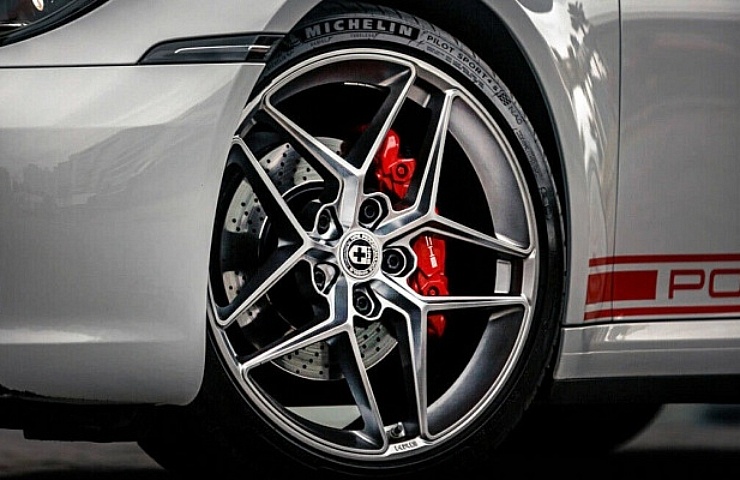The Evolution and Importance of Car Wheels: A Comprehensive Overview
Car wheels are one of the most critical components of any vehicle, playing a vital role in ensuring safety, performance, and aesthetics. Over the years, wheels have evolved significantly, from simple wooden designs to advanced alloy and carbon fiber constructions. This article explores the history, types, materials, and importance of car wheels, as well as their impact on vehicle performance.
A Brief History of Car Wheels
The concept of wheels dates back thousands of years, with early versions made of wood and stone. However, the first car wheels, introduced in the late 19th century, were also wooden and often reinforced with metal bands. These early wheels were heavy, prone to damage, and offered limited performance.
By the early 20th century, steel wheels became the standard. They were more durable and could withstand the increasing speeds of automobiles. In the 1960s, alloy wheels emerged, offering a lighter and more stylish alternative. Today, wheels are made from a variety of materials, including aluminum, magnesium, and even carbon fiber, each offering unique benefits.
Types of Car Wheels
Steel Wheels:
Known for their durability and affordability, steel wheels are commonly used in entry-level vehicles and commercial trucks. They are heavier than alloy wheels but provide excellent strength and resistance to damage.
Alloy Wheels:
Made from a mixture of aluminum, nickel, or magnesium, alloy wheels are lighter and more aesthetically pleasing than steel wheels. They improve fuel efficiency, handling, and braking performance due to their reduced weight.
Forged Wheels:
These are a premium type of alloy wheel, created by heating and compressing metal to form a stronger and lighter structure. Forged wheels are often used in high-performance and luxury vehicles.
Carbon Fiber Wheels:
The lightest and most expensive option, carbon fiber wheels are primarily used in high-end sports cars and racing vehicles. They offer exceptional strength and weight savings, enhancing speed and handling.
Split-Rim Wheels:
These wheels consist of multiple pieces bolted together, allowing for customization and easier tire changes. They are often used in off-road and heavy-duty vehicles.
Materials Used in Wheel Manufacturing
Aluminum: Lightweight, corrosion-resistant, and stylish, aluminum is the most common material for alloy wheels.
Magnesium: Even lighter than aluminum, magnesium wheels are used in racing but are less common due to their higher cost and susceptibility to corrosion.
Steel: Durable and cost-effective, steel remains a popular choice for utility vehicles.
Carbon Fiber: Known for its strength-to-weight ratio, carbon fiber is used in high-performance applications but is expensive to produce.
The Role of Wheels in Vehicle Performance
Handling and Stability:
The weight, size, and material of wheels significantly impact a car's handling. Lighter wheels reduce unsprung mass, improving suspension response and cornering stability.
Fuel Efficiency:
Heavier wheels require more energy to rotate, reducing fuel efficiency. Lightweight alloy or carbon fiber wheels can enhance a vehicle's mileage.
Braking Performance:
Lighter wheels improve braking by reducing rotational inertia, allowing the brakes to stop the car more effectively.
Aesthetics:
Wheels are a key element of a car's design, influencing its overall appearance. Custom wheels allow owners to personalize their vehicles.
Comfort:
The size and construction of wheels affect ride quality. Larger wheels with low-profile tires may look sporty but can result in a harsher ride.
Choosing the Right Wheels
When selecting wheels, consider the following factors:
Vehicle Type: Ensure the wheels are compatible with your car's specifications.
Driving Conditions: For off-road driving, choose durable steel or alloy wheels. For city driving, lightweight alloy wheels are ideal.
Budget: Steel wheels are affordable, while forged and carbon fiber wheels are more expensive.
Aesthetics: Choose a design that complements your car's style.
Maintenance and Care
Proper maintenance is essential to extend the life of your wheels:
Regularly clean wheels to prevent brake dust buildup and corrosion.
Inspect for damage, such as cracks or bends, which can affect performance.
Rotate tires to ensure even wear and prolong wheel life.
Conclusion
Car wheels are more than just a functional component; they are a blend of engineering, design, and performance. From their humble beginnings as wooden discs to the advanced materials used today, wheels have come a long way. Whether you prioritize durability, performance, or style, choosing the right wheels can significantly enhance your driving experience. As technology continues to advance, we can expect even more innovative designs and materials to shape the future of car wheels.


